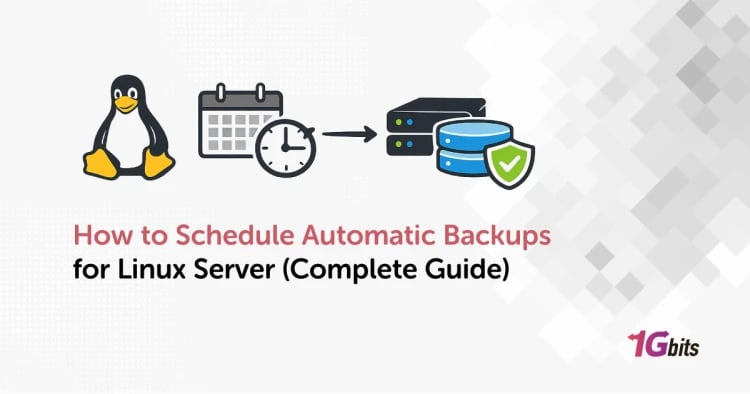When considering VPS hosting for websites or applications, it’s essential to weigh the VPS advantages and disadvantages. A VPS (Virtual Private Server) offers a range of benefits, from increased control and scalability to enhanced security compared to shared hosting. One of the primary VPS advantages is its flexibility, allowing users to install custom software and configurations. However, like any technology, there are VPS disadvantages, such as higher costs and the need for technical knowledge, especially for unmanaged services. Managed VPS hosting can mitigate some disadvantages by providing support, but it often comes at a premium. Understanding the VPS hosting advantages and disadvantages is crucial for choosing the right hosting solution. Whether you’re interested in the best VPS hosting service or seeking specific benefits of VPS, it’s clear that the advantages of VPS hosting, such as control and performance, need to be balanced with its potential drawbacks to make an informed decision. For comparison between Dedicated Server and VPS Hosting, read Dedicated Server Vs VPS Hosting.
What are Vps advantages and disadvantages?
In today’s digital landscape, selecting the right web hosting solution is crucial for businesses and individuals looking to establish an online presence. Among the various options, Virtual Private Server (VPS) hosting is a popular choice for those seeking a balance between cost and control. Vps advantages and disadvantages provides users with a virtualized server environment, giving them the flexibility to customize their server settings and manage resources independently. This type of hosting lies between shared hosting, which is more economical but limited in customization, and dedicated hosting, which offers maximum control but at a higher price.
Understanding the VPS advantages and disadvantages can help you decide whether this type of hosting meets your needs. In this guide, we will explore the Vps advantages and disadvantages hosting, the core VPS hosting benefits, and discuss some of the common questions such as is VPS safe, what is VPS web hosting, and how to find the best VPS hosting service for your requirements. If You want to know definition of VPS, read What Is VPS Hosting, and types of it read Unmanaged VPS Hosting and Managed VPS Hosting.
Advantages of VPS Hosting
There are many reasons why VPS hosting is a preferred choice for web hosting. Here are some of the Vps advantages and disadvantages that make it an attractive option:
-
Enhanced Control and Customization
-
VPS hosting provides root access, allowing users to install and manage custom applications, configure server settings, and tailor the hosting environment to their unique requirements. Unlike shared hosting, where customization is limited, VPS allows full control over the server environment.
-
Dedicated Resources for Consistent Performance
-
Each VPS account has dedicated resources, including CPU, RAM, and storage. This isolation ensures consistent performance regardless of other users’ activities on the same physical server, reducing the risk of performance fluctuations often seen in shared hosting.
-
Improved Scalability
-
One of the significant VPS hosting benefits is scalability. As your website or application grows, you can easily increase your resources without needing to migrate to a new hosting plan. VPS allows you to adjust CPU, memory, and storage allocations, providing a flexible solution for businesses expecting growth.
-
Better Security
-
VPS hosting is generally more secure than shared hosting. Since each VPS operates in an isolated environment, users are protected from issues caused by other websites on the same physical server. This setup also allows users to implement their security measures, making it safer for handling sensitive information. When considering is VPS safe, the answer is generally yes, as VPS offers increased security and control.
-
Reliability and Stability
-
VPS hosting is known for providing reliable and stable performance compared to shared hosting. Each VPS operates independently, so issues affecting one user do not impact others on the server. This reliability is crucial for e-commerce sites and high-traffic websites where uptime and stability are essential.
Disadvantages of VPS Hosting
While VPS hosting offers numerous benefits, there are also some disadvantages of VPS hosting to consider. Here’s a look at some potential drawbacks:
-
Higher Cost Than Shared Hosting
-
VPS hosting is more expensive than shared hosting. For small businesses or individuals on a tight budget, the additional cost may be a significant factor. While VPS is less expensive than dedicated hosting, the increased performance and control come at a price that might be prohibitive for some users.
-
Technical Expertise Required
-
VPS hosting requires a higher level of technical knowledge, especially if you opt for an unmanaged VPS. Users are responsible for setting up, maintaining, and troubleshooting the server, which may be challenging for beginners. Those who lack server administration experience may prefer managed VPS hosting, but this option is more costly.
-
Maintenance and Management
-
With unmanaged VPS, users must handle all server-related maintenance, including software updates, security patches, and troubleshooting. This responsibility may add to the time and effort required to manage a VPS, making it a disadvantage for those who cannot dedicate resources to server management.
-
Resource Constraints
-
While VPS hosting provides dedicated resources, it still resides on a shared physical server. This setup can lead to resource limitations if the hosting provider over-allocates capacity or if other users experience high traffic demands. Although less common than in shared hosting, this is still one of the potential disadvantages of VPS hosting.
For those looking to balance cost and performance, opting for a cheap VPS can be a smart choice, offering affordability while still providing better control and reliability compared to shared hosting.
Is VPS Safe?
A frequently asked question about VPS is, is VPS safe? The answer is generally yes. VPS hosting is known for its increased security compared to shared hosting due to the isolated nature of each virtual server. Since each VPS operates independently, the risk of cross-contamination from other users is significantly reduced. This isolation means that a security breach on one VPS typically does not affect others on the same physical server.
Furthermore, VPS users have control over their security configurations. They can install firewalls, configure secure access protocols, and use SSL certificates to enhance data protection. Although VPS is not inherently immune to security risks, a properly configured and well-maintained VPS can offer a secure hosting environment suitable for handling sensitive data.
Choosing VPS hosting is a decision that requires careful consideration of both the VPS advantages and disadvantages. The Vps advantages and disadvantages hosting make it a strong option for users needing flexibility, scalability, and security without the high costs of dedicated hosting. The VPS hosting benefits, such as dedicated resources, control, and stability, make it ideal for businesses, developers, and individuals with growing websites or custom application needs.
However, the potential disadvantages of VPS hosting, including cost, required technical knowledge, and resource management, may deter some users, particularly beginners or those with limited budgets. By understanding what VPS web hosting entails and exploring is VPS safe, you can assess if VPS meets your hosting needs and choose the right provider for your goals.
With the right VPS hosting plan, users can enjoy the balance of control and affordability, making it a worthwhile choice for many projects. And by choosing the best VPS hosting service based on performance, support, and security, you can ensure a reliable and secure environment for your website or application.
You can explore a trial VPS option to test different hosting providers before committing to a plan, allowing you to assess performance, features, and reliability risk-free.
what is a vps server used for?
Virtual Private Server (VPS) hosting has become a popular solution for users who need more control and reliability than traditional shared hosting can offer. But what is a VPS server used for specifically, and why is it so widely chosen? A VPS provides an isolated environment with dedicated resources, operating much like a dedicated server, but at a fraction of the cost. This unique balance of performance, flexibility, and affordability makes VPS hosting a versatile option for a variety of applications.
Throughout this explanation, we will explore the most common uses of VPS servers, highlighting the VPS advantages and disadvantages and understanding why VPS has become a preferred choice for many users and businesses. Additionally, we’ll touch on the VPS benefits that set it apart from other hosting options.
Website and E-commerce Hosting
One of the primary VPS benefits is its ability to host websites that require stable and dedicated resources. For businesses with high-traffic websites, a VPS server offers improved performance and security compared to shared hosting. This is especially important for e-commerce sites, which demand a high level of reliability and the ability to scale with traffic spikes, such as during sales events. VPS hosting ensures that websites run smoothly without the risk of slowing down due to other users’ activities.
Application Development and Testing
VPS servers are widely used for developing and testing applications in an isolated environment. Developers can install custom software, experiment with new technologies, and configure their server to meet specific requirements. Vps advantages and disadvantages offers a “sandbox” that allows developers to test their applications without risking the stability of a live environment. This flexibility is one of the major VPS benefits for development teams who need a reliable and customizable testing ground.
Remote Desktop and Virtual Workspaces
VPS servers can function as virtual desktops, providing a remote workspace that users can access from anywhere. This setup is beneficial for remote teams and businesses that want to offer secure, centralized access to work resources. Employees can log into the VPS from any location, making it a valuable tool for modern, distributed teams. This usage also adds to the list of VPS advantages and disadvantages, with advantages like ease of remote access and disadvantages like potential setup costs.
Game Server Hosting
Hosting multiplayer games requires reliable resources and low latency, making VPS a common choice in the gaming world. Game developers and gaming communities use VPS servers to host games and customize server settings to enhance player experience. Users can set limits on player numbers, adjust latency, and even install game-specific mods, creating a tailored environment for online gaming.
Email Server Hosting
Some businesses use VPS servers as dedicated email servers to gain more control over their email management. By hosting email on a VPS, companies can set up custom security protocols, manage spam filters, and improve data privacy. A VPS email server offers a secure and reliable alternative to traditional shared email hosting, providing a private environment for company communications.
Data Backup and Storage
VPS servers are often used as secure storage solutions, particularly for backup purposes. Businesses that need a reliable place to store sensitive data, such as customer records or financial documents, can use a VPS to maintain control over access and security protocols. With dedicated resources, users can ensure their data is safe, easily accessible, and protected from potential security breaches.
Private VPN Hosting
Many people host their Virtual Private Networks (VPNs) on VPS servers to secure their internet connections and protect their data privacy. A private VPN hosted on a VPS allows users to control encryption protocols and establish secure access, making it a valuable choice for those looking to enhance their online security. For more details, read VPS Uses and Use Cases.
What Is the Best VPS Hosting Service?
When looking for what is the best vps hosting service , there are several factors to consider, including performance, support, security, and scalability. Here’s a guide to finding a provider that best meets your needs:
Performance and Uptime
The best VPS providers offer high-performance servers with uptime guarantees. For businesses and high-traffic websites, reliable uptime is critical to maintaining user engagement and ensuring accessibility.
For those looking for flexible and scalable hosting options, exploring VPS rental can be a cost-effective solution to meet growing business needs.
Customer Support
Quality customer support is crucial, especially if you’re new to VPS hosting or using managed VPS. Look for providers that offer 24/7 support to resolve issues promptly and minimize downtime.
Security Features
Choose a provider that offers robust security measures, such as DDoS protection, firewalls, and regular backups. These features are essential for ensuring a safe hosting environment, especially for websites handling sensitive or personal data.
Scalability and Flexibility
The best VPS providers offer scalable plans, allowing users to upgrade resources as their needs grow. Scalability is a major VPS hosting benefit, as it allows users to adjust resources without switching to a new server or provider.
popular VPS hosting providers
Now that we have a clear understanding of Vps advantages and disadvantages , let’s take a look at some of the best VPS hosting services currently available:
1. 1GBits
1GBits is an excellent choice for those looking for reliable, high-performance VPS hosting. Known for its exceptional speed and performance, 1G Beats offers a range of customizable plans to suit different needs. With a strong focus on security, users benefit from advanced protection features, including DDoS protection and firewalls. The 24/7 expert support team is available to assist users with any technical issues, ensuring a seamless experience.
Additionally, 1G Beats provides scalable options, making it easy for users to upgrade their resources as their business grows. The combination of performance, security, and customer support makes 1G Beats a standout option for VPS hosting. You can buy it, with clicking on Buy VPS Hosting.
2. DigitalOcean
DigitalOcean is a popular choice among developers and businesses looking for a cloud infrastructure platform. Their VPS offerings, known as “Droplets,” provide a variety of configurations tailored to different use cases. DigitalOcean is particularly known for its simplicity and user-friendly interface, allowing users to deploy and manage their servers with ease.
The company also offers excellent scalability options, enabling users to resize their Droplets as needed. With a strong community and extensive documentation, DigitalOcean supports users with a wealth of resources to help them succeed in their projects.
3. Vultr
Vultr is known for its high-performance cloud VPS solutions, with data centers located around the world. Users can choose from a variety of plans, including both standard and high-frequency compute options. Vultr’s competitive pricing and straightforward billing model make it an attractive choice for businesses looking to optimize their hosting costs.
Additionally, Vultr offers a simple control panel that allows users to deploy and manage their VPS instances quickly. With various operating systems and configurations available, Vultr provides flexibility for different project requirements.
4. Linode
Linode has been a long-standing player in the VPS hosting market, providing robust solutions for developers and businesses. Known for its excellent customer support and competitive pricing, Linode offers a variety of VPS plans that cater to different resource needs.
With a focus on performance and reliability, Linode’s VPS hosting is backed by a solid infrastructure. The company also offers useful tools and resources, including an extensive knowledge base, to help users manage their servers effectively.
5. AWS Lightsail
AWS Lightsail is Amazon’s entry-level cloud platform, offering easy-to-use VPS solutions for businesses and developers. Lightsail simplifies the process of deploying applications and websites with pre-configured instances that include essential tools and features.
AWS Lightsail is an excellent option for users who want to leverage the power of Amazon Web Services without the complexity of its more advanced offerings. The straightforward pricing model makes it easy for users to understand their costs while benefiting from AWS’s powerful infrastructure.
Why Choose 1GBits?
While many VPS hosting providers offer valuable services, 1Gbits stands out for several reasons:
Performance and Speed
1GBits is known for its exceptional server performance, ensuring fast loading times and reliable uptime. This is particularly important for businesses that rely on their online presence to generate revenue.
Robust Security Measures
With advanced security features, including DDoS protection and firewalls, 1GBits ensures that your data remains safe and secure. This aligns well with the advantages and disadvantages of VPS hosting, as users can benefit from heightened security in a controlled environment.
Customizable Plans
1GBits offers a range of customizable plans, allowing users to select the resources that best fit their needs. This flexibility is crucial for businesses that experience fluctuations in traffic.
Expert Support
The 24/7 support team at 1Gbits is knowledgeable and ready to assist users with any issues that may arise. This commitment to customer service enhances the overall user experience, making it easier for customers to resolve problems quickly.
Affordable Pricing
1Gbits offers competitive pricing for its VPS hosting solutions. While some providers charge premium rates, 1Gbits ensures that users receive excellent value for their investment without sacrificing quality.
User-Friendly Interface: 1Gbits provides an intuitive control panel that simplifies the process of managing your VPS. This user-friendly approach is especially beneficial for those who may not have extensive technical expertise.
In conclusion, choosing the best VPS hosting service requires careful consideration of several factors, including performance, security, scalability, and support. While many providers, including DigitalOcean, Vultr, Linode, and AWS Lightsail, offer solid services, 1G Beats emerges as a top contender for its commitment to quality, reliability, and customer satisfaction.
By selecting 1GBits, users can enjoy the advantages and disadvantages of VPS hosting without the common drawbacks found in other providers. The combination of dedicated resources, advanced security features, scalable plans, and expert support makes 1Gbits an ideal choice for anyone seeking a robust VPS hosting solution.
If you’re ready to elevate your online presence and take advantage of the numerous benefits that VPS hosting offers, consider purchasing a VPS plan from 1Gbitsts today. Their dedication to performance and customer satisfaction ensures that you’ll have the support and resources needed to thrive in the competitive online landscape. Don’t wait any longer—choose 1G Beats and experience the difference in VPS hosting!
Additionally, choosing the right VPS location plays a crucial role in optimizing performance and latency. Learn more about how different VPS locations can impact your hosting experience.
Conclusion
In conclusion, understanding the VPS advantages and disadvantages is essential for anyone considering this type of hosting solution. The Vps advantages and disadvantages hosting reveal a balanced perspective: while users benefit from dedicated resources, enhanced security, and greater control, they must also navigate the potential challenges of higher costs and technical management. By carefully weighing the VPS advantages and disadvantages, individuals and businesses can make informed decisions that align with their specific needs and goals. Ultimately, the Vps advantages and disadvantages hosting highlight its suitability for those seeking a middle ground between shared and dedicated hosting, making it an appealing option for various applications. By evaluating the VPS advantages and disadvantages, users can better understand how VPS hosting can enhance their online presence while being aware of its limitations. Embracing the VPS advantages and disadvantages will lead to a more strategic choice in selecting the right hosting solution for their projects.








![What Is Cold Data Storage? ❄️ [2026 Guide] What Is Cold Data Storage? ❄️ [2026 Guide]](https://1gbits.com/cdn-cgi/image//https://s3.1gbits.com/blog/2026/02/what-is-cold-data-storage-750xAuto.webp)
![What Is Virtual Desktop Infrastructure? 🖥️ [VDI Explained] What Is Virtual Desktop Infrastructure? 🖥️ [VDI Explained]](https://1gbits.com/cdn-cgi/image//https://s3.1gbits.com/blog/2026/02/what-is-virtual-desktop-infrastructure-vdi-750xAuto.webp)
![How to Change VPS Password 🔑 [Windows & Linux] How to Change VPS Password 🔑 [Windows & Linux]](https://1gbits.com/cdn-cgi/image//https://s3.1gbits.com/blog/2025/12/how-to-change-your-vps-password-750xAuto.webp)


